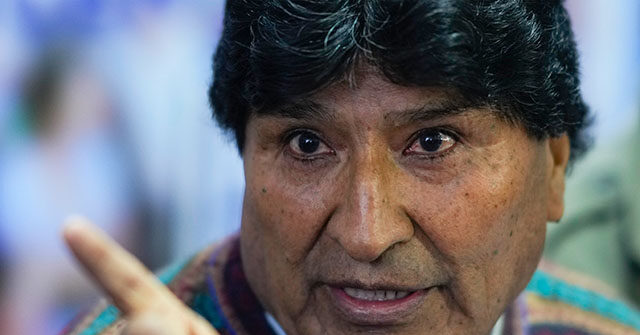Evo Morales, Bolivia’s former socialist president, recently issued a threatening ultimatum to his followers, asserting that they should prepare to blockade the country’s roads if he is arrested over serious charges including human trafficking and statutory rape. Speaking at a Columbus Day commemoration that Bolivia recognizes as the “Day of Decolonization,” Morales emphasized the need for mobilization amid what he termed an unjust legal process against him. His remarks highlight a deepening political crisis in Bolivia and reflect Morales’ commitment to maintaining his influence within the political landscape, despite the accusation weight against him. His statements foster a narrative of persecution aimed at galvanizing his supporters.
The charges against Morales stem from allegations of a sexual relationship with a minor in 2016, during his presidential tenure. Evidence uncovered in Tarija indicated that Morales fathered a child with the victim when she was just 16 years old. The investigation, which had lain dormant for several years, was recently reactivated, resulting in an arrest warrant that was subsequently reversed. This legal back-and-forth underscores the contentious atmosphere surrounding Morales’ situation—the attorney general’s intervention and firing of the prosecutor who issued the warrant typify the complex interplay of power within Bolivian politics.
Following the reopening of the investigation, Morales relocated to Chapare, Cochabamba, a region known for its strong support for him, where he is reportedly being protected by his loyalists, including local coca farmers. This strategic move reinforces his political bastion, but it has also raised questions about the rule of law in Bolivia. Morales’s refusal to comply with legal summons has resulted in the issuance of a new arrest warrant, while authorities have also issued a migration alert, signalling their intent to prevent him from leaving the country amidst ongoing investigations and rising tensions.
As Morales and his supporters react to the legal developments, they have initiated roadblocks in the Cochabamba region, effectively isolating it from surrounding areas and disrupting local economies. The protests appear to be organized by pro-Morales groups as a direct response to the government’s actions against him, reflecting a volatile dynamic that threatens public order. These blockades disrupt daily life, impede access to essential goods, and symbolize the broader struggle between Morales’ faction and the current government led by President Luis Arce, who once hailed as Morales’s protégé, but now appears to be moving against him.
Government officials have condemned the blockades and stressed that they would take action to dismantle them based on intelligence reports. Bolivian Minister of Government Eduardo Del Castillo claimed that the public in Cochabamba does not support the blockades and desires to resume normal economic activities. Moreover, the economic impact of the situation has been substantial; Minister of the Presidency María Nela Prada warned that the daily losses could reach $120 million due to these disruptive tactics, framing them as a betrayal to the most vulnerable segments of society.
The situation is further complicated by Morales’ ambitions to run for the presidency again in 2025, an endeavor that faces constitutional hurdles given his previous term limits. Morales has accused the current administration of conspiring to bar him from pursuing future political office, intensifying animosities between his faction and that of President Arce. Meanwhile, pro-Morales lawmakers have seemingly seized the opportunity to redirect attention from Morales’s legal troubles by supporting accusations against Arce related to sexual harassment. All these elements depict an escalating power struggle within Bolivia, characterized by a potential return to unrest as Morales seeks to maintain relevance in Bolivia’s tumultuous political arena.

